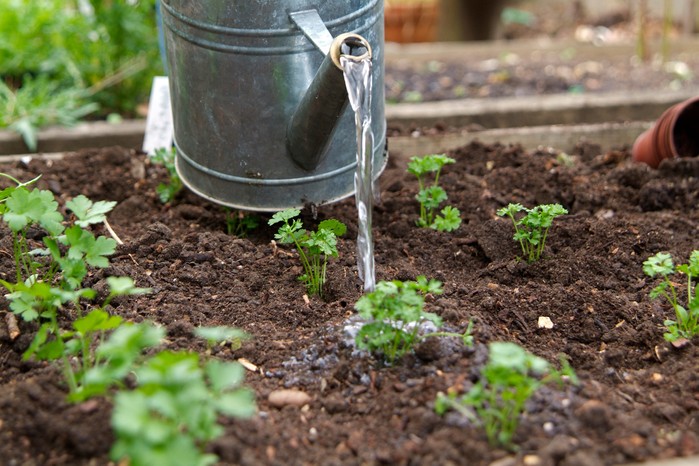
The best thing about gardening with kids? They can pick what they want. You can teach your kids many things about gardening, including how to grow vegetables and what kind of bugs to avoid. Younger children have shorter attention spans than older ones, so it may be a good idea to plan themed gardens. They can read the packet and decide how deep and far apart they should plant the seeds. This will allow them to be involved in the project, and even help them commit.
Gardening can also teach children to organize their belongings. They can talk about why a certain plant died or if it was a result of a lack of organization. They will also be able to get outside and do some work. You will feel proud of your accomplishments and get some exercise. They will be able to use muscles they wouldn't otherwise use, and gardening will provide them with a great workout. Gardening for children will also provide aerobic exercise.

It is common for children to enjoy working on their own and learning about seed requirements. Children can own a small part of a garden and see the plants grow. They can also harvest their own food. This personal connection with plants will lead to a lifelong love of gardening. It will help them build self-confidence. This will allow them to express themselves through their artwork. Mindprint Learning consultant, Dr. Wendy Matthews, believes this is the most rewarding portion of gardening for kids.
A great advantage of gardening for kids are the opportunities to explore nature and learn new things. The child can also learn how to care for and help with different plants. They can even draw pictures of plants they are interested. You can even help them grow your own food by starting seeds or seedlings. If they are satisfied with the produce they have grown, they can enjoy them for dinner. They can also use them for interesting recipes and colorful salads. They can be given to children as gifts, to show their appreciation to teachers and friends. They can also help build their confidence, making gardening more fun and memorable.
Children will also enjoy gardening as it allows them to be in touch with the natural world. Plants can stimulate their senses, attracting birds and other animals. They are not only beautiful, but they also provide valuable skills for children. The children will learn more about the environment by participating in the learning process. They will be responsible for learning about soil, water and fertilizers. If they are interested in gardening, they will be able to enjoy being outside in the garden.

Not only is gardening fun but it can also teach children patience. When they are planting seeds, they must wait for them to see the results. They can also make bird feeders for their windowsills, and other garden decorations. They can also teach their children how to grow vegetables. They will also learn patience. Those who love gardening should take it up as a family activity.
FAQ
Which type of lighting best suits indoor plant growth?
Because they emit less heat that incandescents, floriescent lights are a good choice for growing indoor plants. They provide steady lighting without dimming or flickering. You can find regular or compact fluorescent fluorescent bulbs. CFLs consume up to 75% less electricity than traditional bulbs.
What is the difference between aquaponic gardening or hydroponic?
Hydroponic gardening relies on nutrient rich water rather than soil to provide nutrients for plants. Aquaponics blends fish tanks with plants to create a self sufficient ecosystem. It's almost like having a farm right at home.
How often should I water my indoor plant?
Indoor plants need to be watered every two days. It is important to maintain the humidity level in your home. For healthy plants, humidity is vital.
Statistics
- Today, 80 percent of all corn grown in North America is from GMO seed that is planted and sprayed with Roundup. - parkseed.com
- It will likely be ready if a seedling has between 3 and 4 true leaves. (gilmour.com)
- As the price of fruit and vegetables is expected to rise by 8% after Brexit, the idea of growing your own is now better than ever. (countryliving.com)
- Most tomatoes and peppers will take 6-8 weeks to reach transplant size so plan according to your climate! - ufseeds.com
External Links
How To
How can I keep weeds away from my vegetable gardens?
Weeds pose a major threat to the production of healthy vegetables. They compete for space, water, nutrients, sun, and sunlight. These are some tips to prevent them from taking control of your garden.
-
Take all flowers and plant material.
-
Get rid of any plant debris that may be around the base.
-
Mulch
-
Water regularly
-
Rotate crops
-
Don't allow the grass to grow too long
-
Keep soil moist
-
Plant early
-
Harvest often
-
Add compost
-
Avoid chemical pesticides
-
Produce organic vegetables
-
Get heirloom seed
-
Start small
-
Learn more about companion-planting
-
Be patient
-
Enjoy gardening!